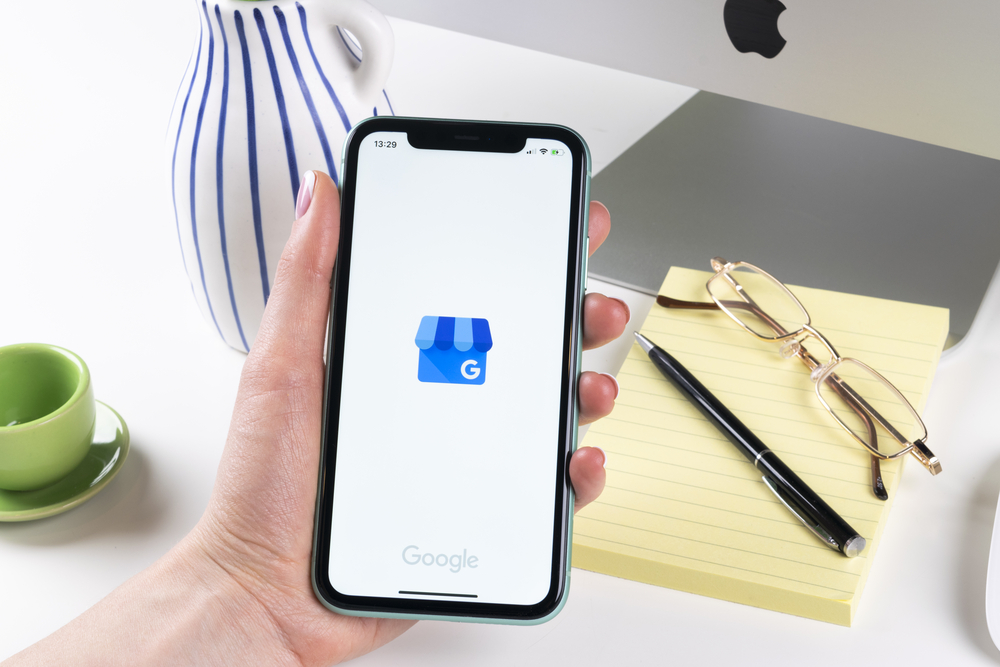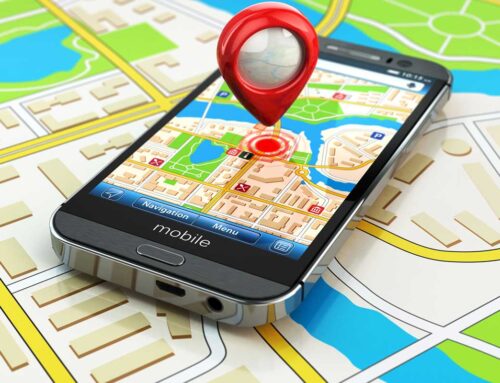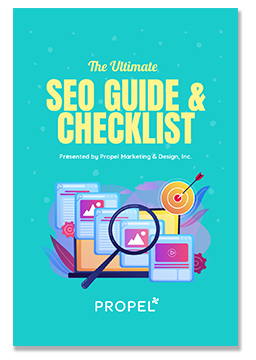You hear a whole heck of a lot about the importance of SEO (search engine optimization) and its impact on your website, traffic, and business. But, did you know that there are two key kinds of SEO- on-page SEO and off-page SEO?
Many of you are well aware of what you need to do to your webpages to gain SEO traction. However, you need to support your SEO efforts off of your webpages, too.
And that’s what we in the biz call off-page SEO.
Today we’re going to help you better understand off-page SEO so you can work your successful SEO strategy both on and off your website.
We’re answering your questions about off-page SEO:
- What is off-page SEO?
- What’s the difference between on-page SEO and off-page SEO?
- Why do the search engines like it?
- How do you work off-page SEO into your overall digital marketing game plan?
- How do I successfully link build for off-page SEO?
- What are some effective off-page SEO strategies?
- And more
Let’s get started…
What is Off-Page SEO?
In its most simplistic form, off-page SEO consists of the SEO processes that take place off of your website, but still improve your website’s ranking on the search engines.
The biggest difference between on-page and off-page SEO is your ability to control it.
On-page SEO is completely up to you, you can go in and optimize your images, you can write excellent content, you can create a superb user experience, etc., all in the efforts to improve your rank on the SERPs (search engine results pages).
Off-page SEO has more to do with how others react to and interact with your website- either helping to promote your ranking or reduce it.
So, how can you support your off-page SEO campaign? First, you need to provide value, give unique content, and be trustworthy. If you offer these things, other prominent, relevant, and honest websites, pages, and people online will link to you, also called backlinking.
This sends the signal to Google that you’re a safe, important, trustworthy site and Google in turn will give you a higher ranking on their SERPs and contribute to your online authority.
Why Do Search Engines Use Off-Page SEO Cues to Help Determine Your Rank?
You know how we ask our friends and family to refer us to their hairdresser or landscaper or plumber? We tend to trust people we know and we then trust the people they work with. The same idea applies to Google.
If Google already knows a brand or business is trustworthy and authoritative, and that business sends its users to your website, essentially you’re getting a big thumbs up from Google’s existing friends: they’re referring you.
These backlinks play a huge role in your SEO success. Google never provides too much detail when it comes to their algorithms, but we know high-quality links is worked in there pretty well based on analysis of the most authoritative sites.
Understanding Links for Off-Page SEO
You hopefully have a good idea about why linking is important to your off-page SEO by now. But let’s get a little deeper into linking it, shall we?
If you need backlinks to further your ranking, how do you go about getting them? We’ve touched briefly on that above: be valuable, relevant, trustworthy, etc. But still, you’ll need to do more than that in most cases, or at least until you make a name for yourself with Google and authoritative web pages/people.
Let’s discuss the kinds of links:
Natural links: These are links that are shared by the content writer or editor without the request or any other action taken by you. Let’s say you own a small cupcake company and use organic flour that you love, the organic flour website may link to you because they want people to taste their flour in your yummy cupcakes.
Manual links: These are links that are shared due to some action you take to promote your website. So, you may reach out to your favorite influencer or a relevant blogger and ask them to share your website on their website, or you could ask your customers to link to you.
Self-created links: These are links that are shared on others’ websites but created by you. Let me start by saying this can look (and be) really spammy, so watch yourself here. If you can ethically share your link in a blog comment, the answer to a question on a forum or Q&A site, directories, or press releases, you should, but it must be relevant and honest. Google will find out if it’s not and you’ll cause more harm than good.
Remember that where the link is coming from matters. Don’t waste your time on unreputable sites because that will NOT work in your favor. It’s not about quantity in this case, it’s about quality. That said, having both is a big win.
Here are the things to look for when investing in your link building campaign:
- Link authority: This is about quality again. If you get linked to by an authoritative source, you’re in good shape. The higher authority they have, the higher you’ll get.
- Use relevant businesses/people for linking: Having companies that have nothing to do with your business linking to you won’t fare as well as relevant companies linking to you. If you’re a massage therapist and a chiropractor links to you, it’ll be better than if a CPA does.
- Nofollow links: If you’re linked to by a business who uses nofollow links for their outbound linking, you won’t get Google credit for it, so be sure you’re spending your efforts where it will pay off. However, you can still get more traffic to your site, generating more business for you, so we’re not saying to avoid this altogether, just be aware of what you’ll be receiving when a company links to you.
Other Ways to Achieve Off-Page SEO Success
Backlinking is the bread and butter of your off-page SEO campaign, but there are a few other ways to go about it.
Setting Up Your GMB (Google My Business) and Bing Places
Google My Business is totally free and totally necessary if you’re a business owner. It will quickly and easily legitimize your company and when set up correctly, has the possibility of putting you up top on the SERPs when a local user searches for your keywords (called the snack pack).
Bing Places is another totally free and totally necessary profile to set up and gives you all the same perks that GMB does.
Showing Your NAP (Name, Address, Phone)
Wherever you should show your NAP, go for it. Yes, we bolded the word “should” because it’s important you do this where it’s relevant and makes sense, not just where it’s possible for you to do it.
Consider industry and community-related listings that you should be a part of and be sure your NAP can be found on all of them.
Also think of online forums, groups, directories, foundations, etc. that you’re affiliated with or you have a tie to. In these places, you should provide your details inclusive of your website link.
Offering Human Interaction
This is especially important for local SEO and if you have a brick and mortar. Being involved with your community, providing a space for local events, contributing to local charities, all of these will provide you a link or two from local websites.
But also, when you attend community events, by definition, you’re meeting your community. This is a great way to earn trust and support both online and offline. Gaining a social media following is an excellent source for brand awareness, which can influence authoritative websites to link to you, too.
Getting Good Reviews
Reviews can make or break you so if you get a bad one, respond ASAP, and if you get a good one, also respond. Your customers can review you directly on your GMB profile and Google loves it, so you should ask them to do this for sure. (If you have good reviews on your GMB profile, it will help with your snack pack efforts.)
Having great reviews across the internet will definitely help with your off-page SEO, so don’t stop at GMB. Make it easy for your customers to review you by sending them links or forms.
Miscellaneous Off-Page SEO Marketing Tactics
Don’t forget about what you can do with social media marketing, guest blogging (giving and receiving), and influencer marketing. All will benefit your off-page SEO strategy, but remember to always be ethical and relevant.
All of these are off-page SEO tactics that you actually DO control (if not fully, then somewhat), so definitely control them.
The Takeaway
We understand that off-page SEO may not be as simple as on-page SEO, but like so many other things in life, once you get it down pat, it won’t seem so out of reach. Take care of all the ways to manage your off-page SEO that you have some control over and then let the rest fall into place.
Google isn’t trying to make your life more difficult. Think about when you first meet someone, you don’t trust them straight away, they need to earn it. Even if they’ve been vouched for by someone you trust, their work isn’t done, you still want to get to know them better before handing over the keys to the kingdom.
Google’s principle is the same. It can’t give you credit if you haven’t worked for it and proven yourself. And isn’t that what you expect when you type a query in? A trustworthy website at the top of the SERPs? Google is working for the user, so prove yourself with a stellar off-page SEO campaign and the user will find YOU at the top of the SERPs.
Happy off-page SEO’ing!









![How to Write a Professional Chiropractic Bio [Template Included]](https://propelyourcompany.com/wp-content/uploads/write-a-bio-500x383.jpg)

